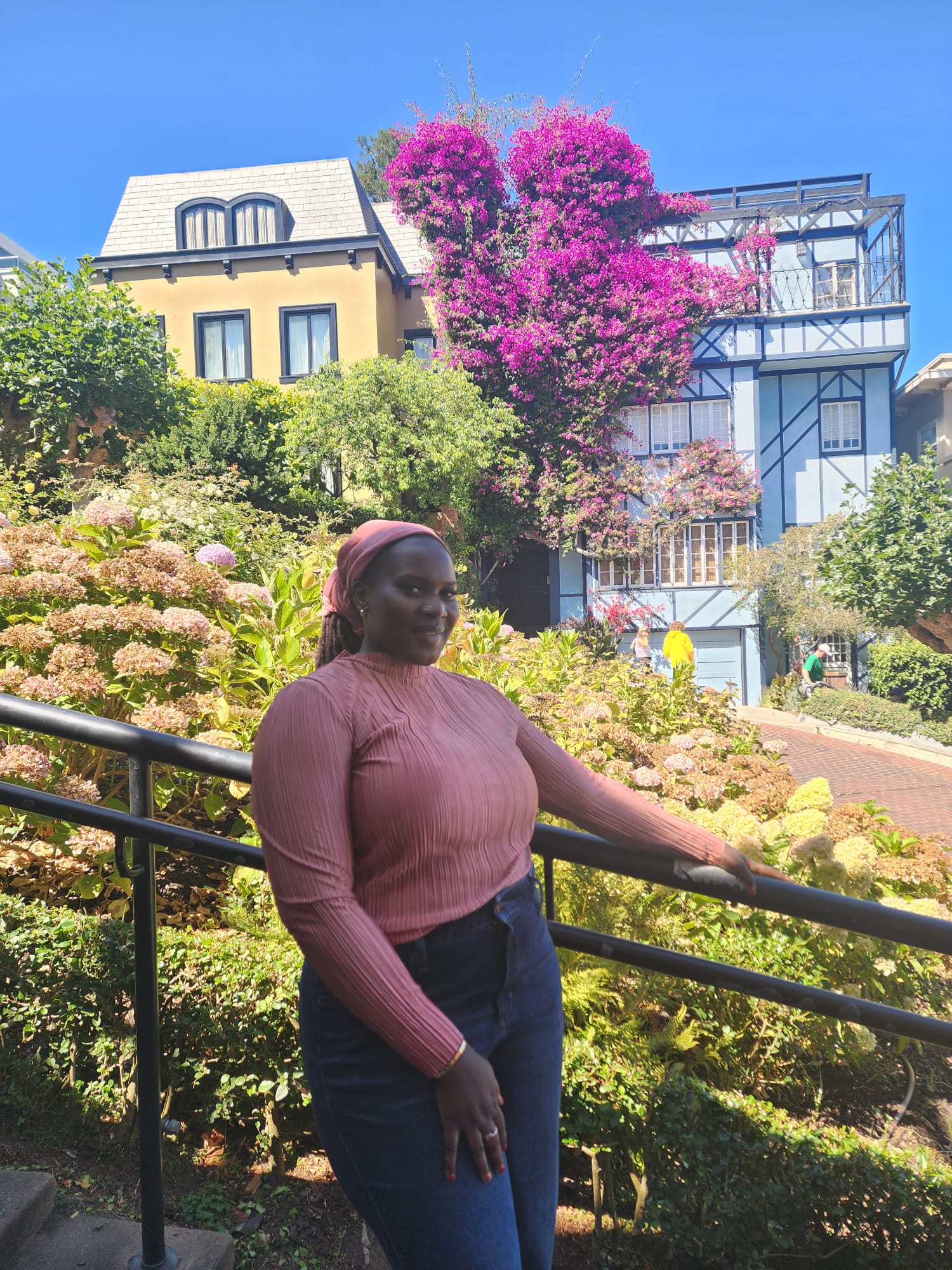By: Sara Khattak
Recently, policy interns at Sahiyo have been interviewing members of the Washington Coalition to End FGM/C to learn more about coalition member’s important work toward creating policy on female genital cutting (FGC). Sahiyo’s policy intern, Sara Khattak, talked to coalition member Amie Kujabi, a prominent advocate in the work to end FGC.
Amie Kujabi, originally from The Gambia, has been involved in working to end violence against women since she was a teenager. Her personal experience as a survivor of female genital mutilation/cutting (FGM/C), has shaped her path as an advocate.
Amie's involvement with the Washington State Coalition began in late 2022, when her friend and former colleague Absa Samba introduced the group to her. Amie’s role within the coalition took on new significance when she gave testimony during hearings for Senate Bill 5453, which aimed to end FGM/C in Washington State.Amie believes that survivors’ testimonies are crucial in the policy-making process.
"When you look at it, there are people that have been affected by this harmful practice, and sharing your story also boosts the importance of why certain policies or actions need to be taken."
By putting a face to the issue, survivor’s stories help lawmakers and the public understand that FGC is not just a theoretical problem but a real threat affecting lives in their communities.
While Amie has received overwhelming support for sharing her story, she's also faced some challenges from those trying to justify the practice. She emphasizes the importance of education and awareness, noting that many people, including some from practicing communities, don't fully understand the harmful effects of FGC.
Amie has observed significant progress in the work to end FGC, particularly in her home country of The Gambia, as well as other African nations. She credits much of this progress to young people taking the lead in advocacy efforts against the practice.
"Young people of our generation are actually taking the lead in trying to speak out and advocate for policy change... I believe that has really impacted where we are today."
Amie stresses the need for strong, comprehensive policies that address both prevention and response. She emphasizes that laws against FGC not only protect those at risk but also provide avenues for survivors to share their stories and access necessary services.
"Both those at risk and the survivors have a huge advantage to benefit from the existence of these laws."
She highlighted the need for services like counseling and therapy for survivors, as well as education to combat misinformation rooted in cultural or religious beliefs about FGC.
Amie encourages more people to get involved in the work to end FGC, whether they're survivors or not.
"You don't have to be a survivor to join the cause."
She calls for greater collaboration and networking among organizations, recognizing that the issue of FGM/C intersects with many other social and health concerns.
For those considering sharing their own stories, Amie acknowledges the courage it takes but also the potential impact that survivors' stories can have.
"It takes a lot of courage and discernment," she said, advising individuals to engage only when they feel comfortable and safe to do so.
As we continue the work to end FGC, Amie's parting message emphasizes the need for comprehensive support for survivors:
"Prevention is important, responding is important, but the provision of services is equally important for survivors."
By ensuring access to professional support services, we can encourage more survivors to come forward and join the cause.
Amie Kujabi's story is a powerful reminder of the impact one voice can have in the movement to end FGC. Through her advocacy and courage in sharing her personal experience, she is helping to shape policies and change lives. As we move forward, let us heed her call for greater involvement, improved services, and continued dedication to ending this harmful practice.
We extend our gratitude to Amie for her invaluable contributions and insights. To learn more about our ongoing work and other interviews, visit Sahiyo’s website.
To learn more about Amie and her journey, watch the video below.

